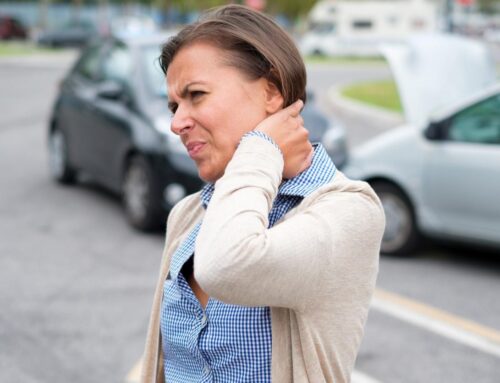When it comes to report cards in driving—there are four D’s everyone needs to avoid: Drunk Driving, Drugged Driving, Drowsy Driving, and Distracted Driving. All of these are DANGEROUS, and can impair or ruin the college experience. Good News: ALL of these are 100% avoidable. Parents and Students-don’t settle for any “D’s” when it comes to driving!
Drunk Driving
College Drinking and underage drinking is a real problem. The statistics can be frightening, as well as exponentially magnified if your student chooses to get into a car while drinking. Here are some facts to be aware of: college fact sheet and college fact sheet for parents.
Parents and concerned adults should talk about the harmful dangers of underage drinking with their student drivers before they leave home. “The first 6 weeks of freshman year are a vulnerable time for heavy drinking and alcohol-related consequences because of student expectations and social pressures at the start of the academic year.” Talking to your student is critical to their safety and the safety of everyone on the road with them. How young is too young? Check out this article to help you decide: How Young is Too Young About Underage Drinking.
Drugged Driving
Driving under the influence (DUI) is the most common vehicle-related charge issued by law enforcement among college students in the US. “Under the influence” used to refer being inebriated from just alcohol consumption. But with the accessibility and use of other substances, like marijuana, illicit drugs, prescription and OTC drugs—drugged driving continues to increase at alarming rates in younger and younger drivers. We are learning by sad experience, that drugged driving is more common in teenagers and younger drivers than we once thought. An Opioid epidemic has been declared across the country; not only creeping its way on to college campuses, but to our roadways as well.
College students are far from immune from what public officials have declared as the worst drug crisis in American history. Get informed on drugged driving here https://www.fieldinglawgroup.com/accident-tips/avoid-drugged-driving/ and here https://home.trafficresourcecenter.org/Impaired-Driving/Drugged-Driving.aspx, and talk to your kids! It could save a life.
Drowsy Driving
Studies done by the Nation Sleep Foundation need to wake every driver up to the risks of driving while tired. One of the statistics that is particularly important for college students and their families to pay attention to is that drivers between the ages of 18-29 are more likely to drive while drowsy than any other age-range. https://drowsydriving.org/about/facts-and-stats/
Drowsy driving results in a slower reaction time, decreased awareness, impaired judgment and an increased risk of getting involved in an accident, resulting in unnecessary deaths or injuries to innocent people. Nearly nine out of every ten police officers, according to an AAA Foundation for Traffic Safety Internet survey, reported they had stopped a driver who they thought was drunk, but turned out to be just drowsy. The survey was coordinated with the National Highway Traffic Safety Administration (NHTSA).
The NHTSA reports that drowsy driving is the direct cause of approximately 100,000 police-reported crashes annually, resulting in an estimated 1,550 deaths, 71,000 injuries and $12.5 billion in monetary losses.
Talk to your student about getting enough sleep, taking breaks while driving, not driving late at night, or abusing alcohol or other substances–especially if they’re going to be behind the wheel! https://www.sciencedaily.com/releases/2008/06/080609071228.htm
Distracted Driving
Distracted driving is also on the rise in college-age students, with the majority of fatalities falling in the 20-29 age-range. Remind your student that there is no text, phone call, snack, make-up, or song worth taking their eyes off the road for. Many states have enacted Distracted Driving Laws and readily enforce them, to make driving for everyone safer. Check out this article on the new Distracted Driving Law in Washington state. https://www.fieldinglawgroup.com/accident-tips/distracted-driving-law/.
In a world of Smartphones, tablets, and digital information readily available with the swipe of a fingertip—it’s important to set boundaries for student drivers because there are countless distractions that could result in an accident, fatality, or at the very least—an expensive citation. If the temptation is just too great, here are a few helpful alternatives to help curb distracted driving. https://www.fieldinglawgroup.com/accident-tips/10-apps-help-prevent-distracted-driving/
Grade Your Driving Experience
Driving off to college is more than just about getting a degree. It’s an experience that will not only prepare you for getting ahead in the real world, but can affect the rest of your life. Be smart and avoid the Impaired Driving traps that could turn out to be the most dangerous “D’s” out there when it comes to grading your college experience. For other College Bound safety tips, check out: https://www.fieldinglawgroup.com/accident-tips/distracted-driving-college-bound/
If you or someone you love has been injured in a car accident, don’t hesitate to contact Fielding Law Group today for help.
FREE PERSONAL INJURY & AUTO ACCIDENT ATTORNEY CONSULTATIONS • WE DON’T GET PAID UNLESS YOU WIN • WE’RE HERE TO HELP





